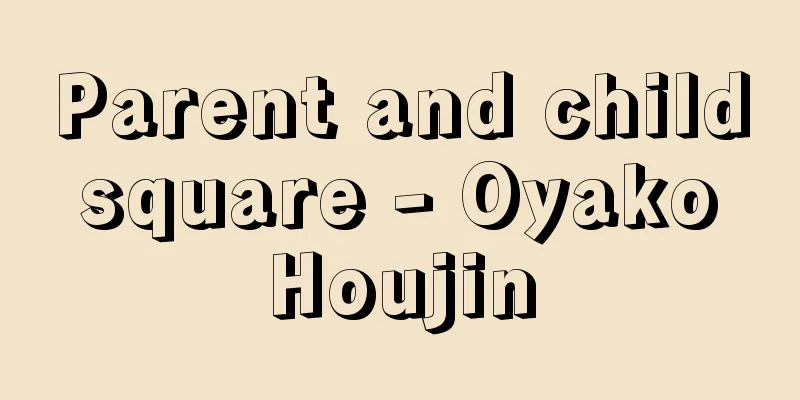Abandoned - abandoned

|
Abandonment refers to the neglect of custody duties, endangering the life and physical safety of those in need of protection (elderly people, young children, physically disabled people, sick people, etc.). Under the Criminal Code, this is punishable as the crime of abandonment (Articles 217 to 219). Abandonment of infants and children also falls under the category of child neglect. Before the war, in addition to abortion and infanticide as a form of abandonment, abandonment of children and human trafficking were rampant, especially in rural areas after famines, and it was common for prostitutes who were sold into employment to fall ill and die from being left unattended. Abandonment also includes the running away of a person with a duty to support. Reasons for running away include debt or moving to a mistress's house, but running away in violation of these obligations to support or live together is considered "malicious abandonment" (Article 770 of the Civil Code) and is grounds for divorce. In addition, abandonment of infants (abandoned children), even among those in need of protection, such as the case of a child abandoned in a coin locker (1973), is punishable as a crime of abandonment by a person with responsibility for their care (Article 218 of the Penal Code). In addition, since the installation of a "baby post" (2007) at a private hospital in Kumamoto City, social interest in the abandonment of infants by those with responsibility for their care has increased. Abandonment is closely related to family conflicts, a weakening of the sense of support, and the growing poverty of life due to an increase in non-regular employment and difficulty in finding employment. In the future, the issue will not only be to hold those with support obligations accountable for their abandonment, but also to find ways for the whole of society to watch over and support those with support obligations in addition to those in need of protection. [Seiichiro Sakuda] [References] | | | |Source: Shogakukan Encyclopedia Nipponica About Encyclopedia Nipponica Information | Legend |
|
遺棄とは、要保護者(老年者、幼年者、身体障害者、病者など保護を必要とする者)の生命や身体の安全を危険にさらして監護義務を放棄している状態をさす。刑法上では、遺棄罪(217条~219条)として処罰の対象となる。また乳幼児や児童に対する遺棄は、児童虐待におけるネグレクト(育児放棄)に該当する。 戦前は、遺棄の一種として堕胎や嬰児(えいじ)の間引きに加えて捨て子や人身売買が、とくに飢饉(ききん)後の農村で横行し、身売り奉公先で遊女(娼婦)が病にかかり放置されて亡くなることも多かった。 遺棄には、扶養義務者の家出(蒸発)も含まれる。家出の原因として借金や愛人宅へ生活の場を移すなどがあげられるが、これらの扶助義務や同居義務に不当に違反する家出は「悪意の遺棄」(民法770条)として離婚事由の一つに該当する。またコインロッカーに子どもを捨てる事件(1973)など、要保護者のなかでも乳幼児を対象とした置き去り(捨て子)は保護責任者遺棄罪(刑法218条)として処罰対象となる。その他、熊本市の私立病院に「赤ちゃんポスト」(2007)が設置されて以降、保護責任者の乳幼児の遺棄に対する社会的な関心が高まっている。 遺棄には、家族間の葛藤(かっとう)や扶養意識の希薄化などとともに、非正規雇用の増加や就職難などの生活の困窮化も密接にかかわっている。今後は、扶養義務者の遺棄に対する責任の追及だけではなく、要保護者に加えて扶養義務者をいかに社会全体で見守り支えていくかが課題となる。 [作田誠一郎] [参照項目] | | | |出典 小学館 日本大百科全書(ニッポニカ)日本大百科全書(ニッポニカ)について 情報 | 凡例 |
<<: 境 - iki (English spelling) threshold, limen (English), seuil (French), Schwelle (German)
Recommend
Gospels - Fukuinsho
"Gospel" means "good news," a...
myrobalan
…Kakishibu tannin is extracted from persimmons an...
Creosote oil - Creosote oil
A type of coal tar fraction. A mixture of medium ...
VOR - Video Arrow
VHF omni-directional radio range is a ground radi...
Ultrasonic testing - Ultrasonic testing
This is a non-destructive inspection that uses ult...
The Story of Rikuunsen
A long narrative poem written in Chu Nom by Nguyen...
Consumer surplus
It is the amount remaining after subtracting the ...
Tall tale
Tall tales are folklore handed down in the western...
"Kiso Petition"
…(1) The name of a Heike piece. It is also called...
Penicillium citreoviride
...There are three types of mold that produce tox...
Senecio articulatus (English spelling) Senecioarticulatus
…[Ichiro Sakanashi] [Hiroshi Yuasa]. … *Some of t...
Ohiroshikiban - Ohiroshikiban
The title of a job in the Edo Shogunate. An offici...
Motoi - I mean
〘Noun〙 (meaning " original residence" ) ...
Reichs-Autobahn (English spelling)
…The first section of the German autobahn, the Bo...
IRRI - International Relations Research Institute
International Rice Research Institute. The world&#...









